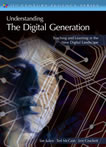|

Literacy is Not Enough, L. Crockett, I. Jukes, & A. Churches
$24 KASA member cost * $28 nonKASA member cost
In our present society we are seeing powerful technologies and information systems causing a parallel change in the knowledge base. Why are facts are becoming obsolete faster and knowledge built on these facts less durable? What are the new methods for learning, communicating and collaborating both in business and education? With so much information at our fingertips, how do we discern the good from the bad, the correct from the incorrect, and the empty from the meaningful?
In today's world, traditional literacy alone is insufficient for success in the classrooms and the workforces of the new digital age. The rapid advancements in technology leading us into the future call for a whole different set of skills to utilize it all to its full potential. "Literacy is Not Enough" defines the essential skills and mindsets our children need to survive and thrive in 21st Century digital culture, through the understanding and application of essential new 21st Century fluencies.

Understanding the Digital Generation, I. Jukes, T. McCain, L. Crockett - $28
There comes a time where every generation looks at the one ahead and experiences the moment where they ask, "what's wrong with these kids today?" The truth is kids today are different - they think, learn and interact in a whole different way than we did growing up. So what's the deal? Why are they resistant to the ways we did things when we were young? How is it traditional teaching methods aren't as effective now as they were with our generation and the ones before? What are today's digital children doing to stay engaged, informed, entertained and connected?
The answers to these questions and more can be found in "Understanding the Digital Generation". This book examines the effects that digital bombardment and constant technological interaction has had on digital learners, and how it shaped the young impressionable brain. It also takes a detailed look at the defining attributes that make today's kids so different, and how we can better understand the children who will be the leaders of the future.
|
